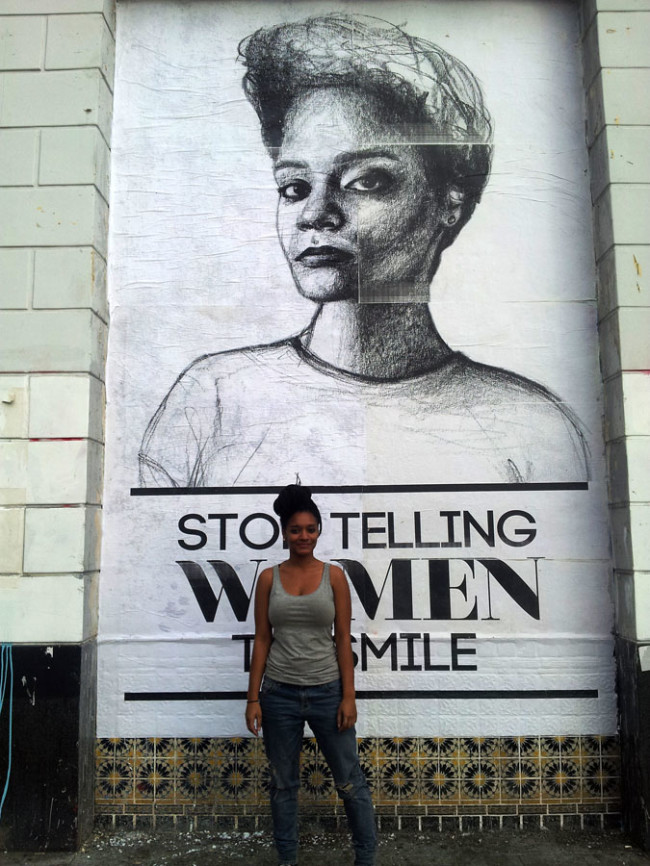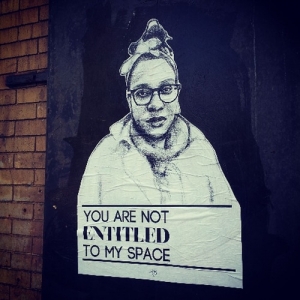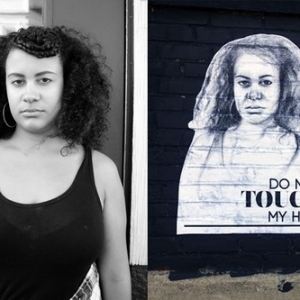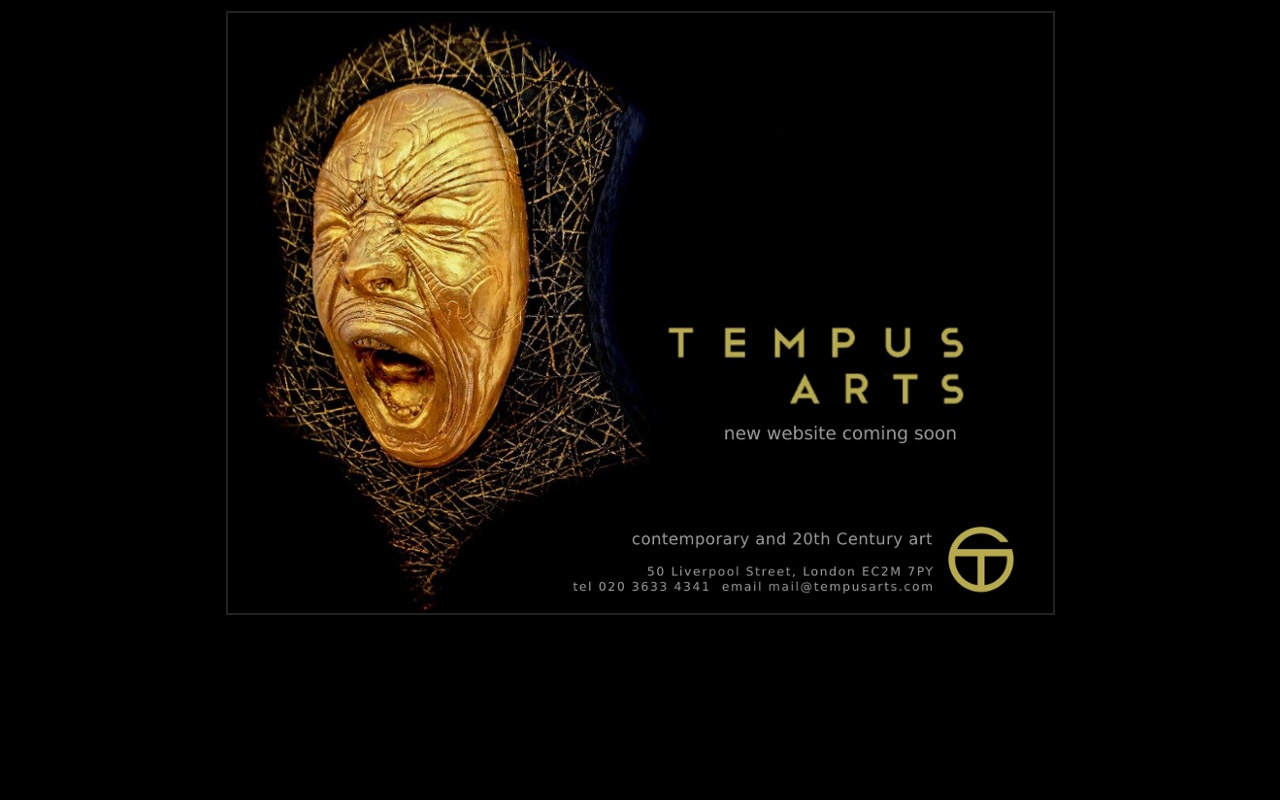Tatyana Fazalizadeh’s public art project places sketched portraits of women in urban spaces, each portrait depicting a woman who has had a personal experience of harassment. As she draws Fazalizadeh asks the women about their experiences and using their words adds powerful captions to the pictures which speak directly to their offenders.
Street harassment, defined by the organisation Stop Street Harassment as ‘actions and comments between strangers in public that are disrespectful, creeping, threatening and unwanted’, is estimated to impact more that 80% of women worldwide. What is more, much of these harassing behaviours have become normalised by modern society as merely expected annoyances. The principal victims are women, beleaguered by this public invasion of privacy where sexual attitudes are foisted upon them without consent.
Each of Fazalizadeh’s drawings is vividly audacious, made up of thick, bold pencil lines which powerfully contour each woman’s striking face. These are powerful portrayals of women who have been made to feel vulnerable and objectified. Each pronounced pencil stroke attempts to reclaim the subject’s autonomy over their body.
The captions ranging from ‘My outfit is not an invitation’, ‘Women are not outside for your entertainment’ to ‘My name is not baby’ restore the female voice which is often subdued in these intrusive interactions. The pronounced, capitalised font embodies the definitiveness of each statement, re-claiming and establishing female empowerment.
Acting under the cover of darkness, armed with only wheat paste and a paint brush, Fazalizadeh peppers her art throughout the streets of Brooklyn, specifically targeting areas where incidents of street harassment are significantly high. By placing her work in such a public arena Fazalizadeh hopes her art will reach ‘the people who can stop street harassment’, principally, ‘the men themselves who commit it’.
Giving women a daring presence in environments which for them are most hostile, Fazalizadeh’s art becomes one of resistance. These are not women clad in skimpy clothing, or playing seductress – these are portraits which humanize the faces of women, directly challenging the behaviour of those who intimidate and impede upon the female body.
The project’s title – Stop Telling Women to Smile – challenges the idea that small, seemingly complimentary comments are ordinary or benign. The title “brings you in”, says Fazalizadeh, causing you to “question” what can be construed as street harassment. When a man asks a woman to smile for him, he immediately negates her ability to act for herself. “It’s a matter of control over women’s bodies,” says Fazalizadeh, “And it’s a serious issue to address.”
The project further questions the point at which gender-based street harassment crosses over into more alarming concerns such as rape and domestic violence. As Anthonine Pierre of the Brooklyn Movement comments, “How do we women, walking at 10pm through a poorly lit and empty park, know that “Smile Guy” isn’t one bad interaction away from becoming ‘Sexual Violator Guy,'” she goes on to say, “We’ve met “Sexual Violator Guy” and [he] almost always starts out as “Smile Guy.'” When the notion that women have no sanctified space, not even over their own bodies, becomes routine we also encourage interactions that could lead to more sinister consequences.
At present Fazalizadeh’s primary focus is upon women’s experiences of street harassment, yet there has been notable interest from men. “As the work gained attention,” she says, “I realised how many different types of people can relate to this and have stories to tell.” Many men have come forward to reveal their own encounters with street harassment both great and small. “Right now though I want to focus on women – of varying backgrounds”, says Fazalizadeh, “To really tackle the ways in which our bodies are sexualised and mistreated in the public space.”
This male interest has also come in more negative forms. Men have defended themselves directly upon the portraits scrawling crude figures and defiant comments. This graffiti, however, melds easily into the sketches’ stark black and white lines becoming part of the art itself. In this way the aggressive behaviour of harassers is exemplified. Their lame, sketchy lines are feeble in comparison to Fazalizadeh’s strident outlines. It’s an effect that confirms the validity of women’s right to defend themselves against harassment and the need for change in male harasser’s attitudes to women.
“There are always those who want to tell women that their experiences are not valid or not important whenever they speak up,” declares Fazalizadeh, “For me, as a black woman, this is particularly true. Wanting the basic right of feeling comfortable and safe and not sexualised as I walk out of my house is very much worth priority.” Through her work Fazalizadeh has carved a place for women in the very spaces they are suppressed and victimised. Stop Telling Women to Smile uses art to confirm women’s importance and help establish a point of solidarity for all those isolated by harassment.









